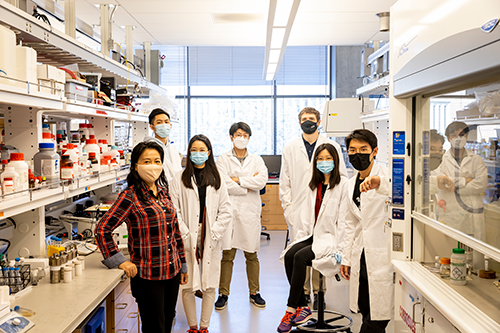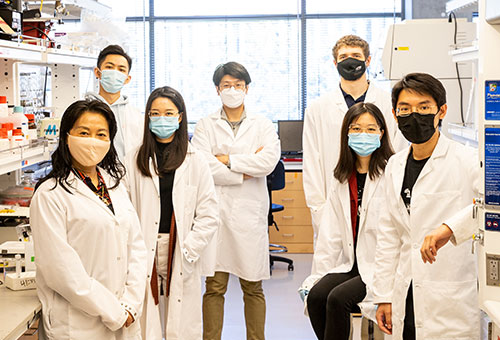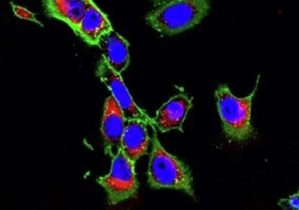
Scientists at the University of Washington have recently developed a new nanoparticle-based drug delivery system that simultaneously delivers chemo- and immune- therapeutics directly to the tumor site, limiting harmful off-target side effects. In a paper published last November in Materials Today, they reported that their multifunctional nanoparticle can inhibit tumor growth and spread, also known as metastasis, in mouse models of triple negative breast cancer, an exceptionally aggressive form of breast cancer with limited treatment options.

Miqin Zhang is working to improve cancer treatment with nanoparticles made from the same material found in crustacean shells.

A University of Washington team led by Miqin Zhang, a MolES faculty member and professor of materials science and engineering, has developed a nanoparticle-based drug delivery system that can ferry a potent anti-cancer drug through the bloodstream safely. Their nanoparticle is derived from chitin, a natural and organic polymer that, among other things, makes up the outer shells of shrimp.